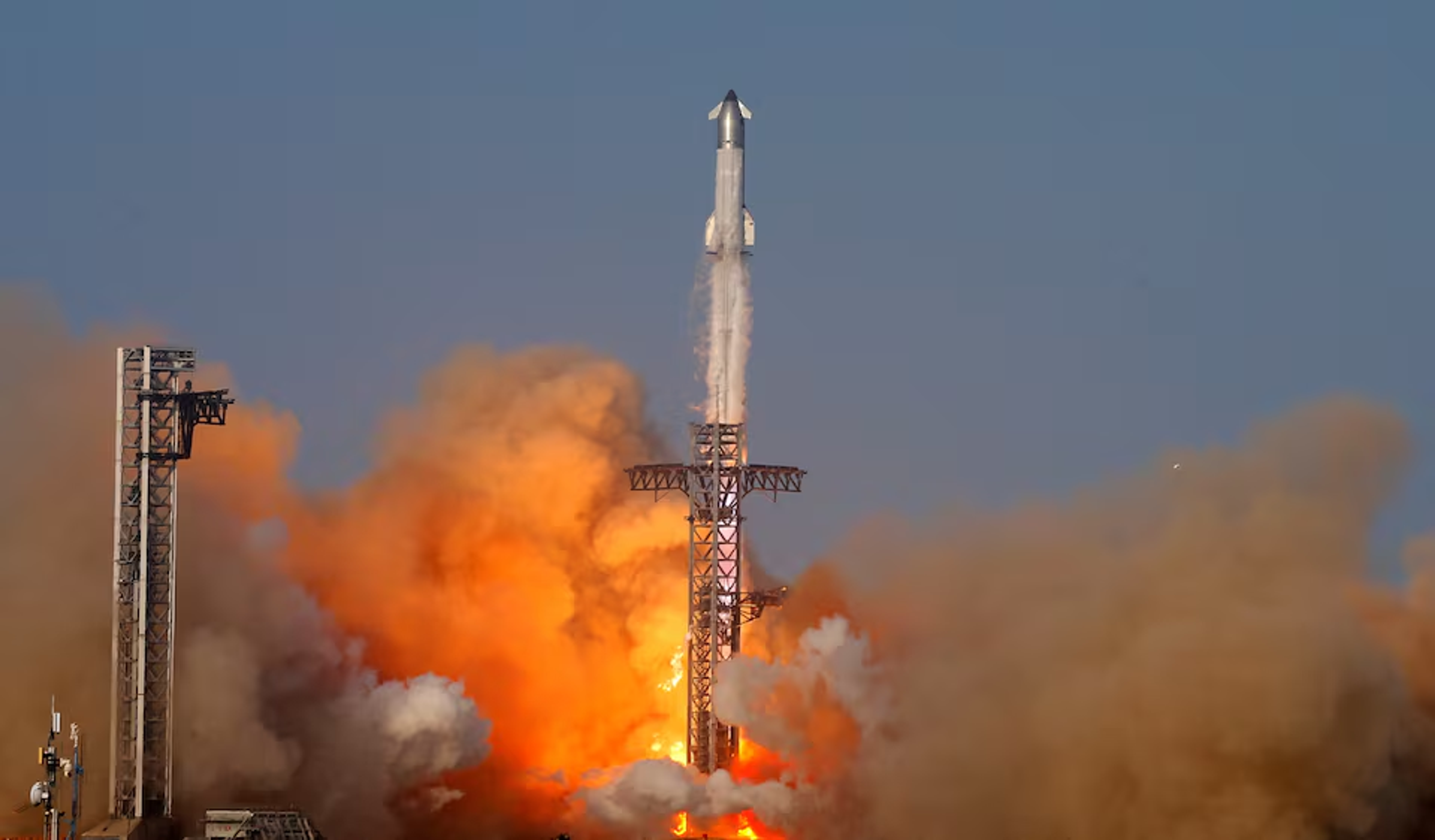SpaceX Starship Destroyed in Third Straight Fiery Test Setback
SpaceX's Starship rocket suffered a third consecutive setback when it tumbled out of control and disintegrated over the Indian Ocean during a test flight due to fuel leaks and technical issues.

The SpaceX Starship rocket launches from Starbase, Texas, as seen from South Padre Island on May 27, 2025. SpaceX mission control lost contact with the upper stage of Starship as it leaked fuel, spun out of control, and made an uncontrolled reentry after flying halfway around the world, likely disintegrating over the Indian Ocean, officials said. Sergio Flores/AFP via Getty Images
SpaceX's Starship rocket suffered a significant setback in its latest test flight, marking the third consecutive failure for the Elon Musk-led company. The colossal rocket, comprising the Starship upper portion and its Super Heavy booster, launched from the company's Starbase in southern Texas on Tuesday evening. Despite reaching space, the spacecraft encountered technical issues, including fuel leaks that caused a loss of main tank pressure during the coast and re-entry phase. This led to a loss of attitude control, causing the rocket to tumble out of control and ultimately disintegrate as it hurtled back to Earth.
The mission, watched by around 1.1 million viewers on X, was expected to test the Starship's capabilities, including deploying dummy satellites. However, the vehicle's bay door failed to open as expected, cutting the test short. The Super Heavy booster also suffered an apparent problem and exploded as it maneuvered itself into position and plunged back to Earth. According to SpaceX commentators, the booster was expected to make a hard splashdown in the Gulf of Mexico regardless.
Gear Spotlight: Relevant to This Story


Elon Musk acknowledged the mission's progress and technical issues, calling it a "big improvement" from the two previous demos. Despite the repeated setbacks, SpaceX remains committed to refining its technique for recovering all pieces of Starship after launch. The company is working towards making Starship fully reusable, which would significantly reduce launch costs. This is crucial for NASA's plans to land astronauts back on the moon and for SpaceX's ambitious goal of colonizing Mars.
The Federal Aviation Administration (FAA) is actively working with SpaceX on the event, but there are no reports of public injury or damage to public property. The incident highlights the challenges SpaceX faces in developing the Starship program, but the company insists that failures are expected during experimental test phases and contribute valuable engineering insights. With over $19 billion in U.S. government contracts since 2008, SpaceX is pushing the boundaries of space technology.













